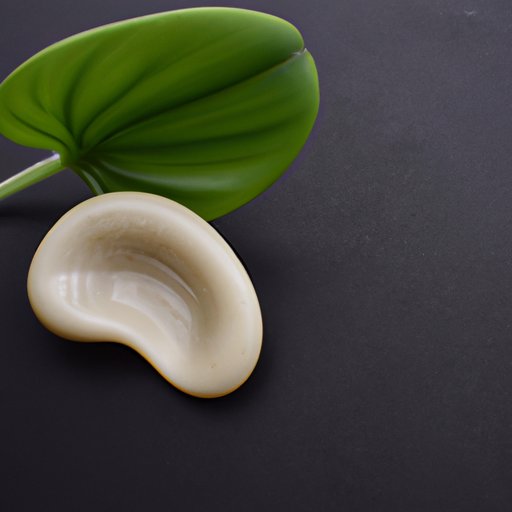
Introduction
Ringing in the ears, or tinnitus, affects millions of people around the world. It is often described as a persistent ringing, buzzing, hissing, or clicking sound in the ears, which can be frustrating and even debilitating for some. But don’t worry, there are ways to stop ears from ringing. In this article, we’ll explore different approaches to relieve the symptoms of tinnitus.
Home Remedies for Ear Ringing
Home remedies refer to natural remedies that can be easily done at home without the need for prescription medication or medical intervention. Some effective home remedies for ear ringing include:
White Noise
White noise is a type of sound that contains all frequencies at the same level. It helps to mask the sound of tinnitus by providing a constant, soothing background noise. Common sources of white noise include fans, air conditioners, and sound machines.
Essential Oils
Certain essential oils, such as lavender and peppermint, have natural calming properties that can help to reduce anxiety and relieve stress-induced tinnitus. They can be used in diffusers, inhalers, or added to a warm bath.
Herbal Supplements
Some herbal supplements, such as ginkgo biloba, have been shown to improve blood flow and reduce inflammation in the ear, which can help to alleviate tinnitus. However, it’s important to consult with a healthcare professional before taking any supplements.
Saltwater
Saltwater can help to clear any blockages in the ear, which can cause tinnitus. Mix a teaspoon of salt in a cup of warm water, tilt your head to the side, and gently pour the solution into the ear.
Heat Therapy
Applying heat to the affected ear can help to increase blood flow and reduce inflammation. Use a warm compress or heating pad for 20 minutes at a time, several times a day.
Medication
There are different types of medications that can be used to treat tinnitus, including:
Antidepressants
Antidepressants such as amitriptyline and nortriptyline can help to reduce the symptoms of severe tinnitus by altering the levels of neurotransmitters in the brain. However, they can have side effects such as drowsiness and dry mouth.
Anticonvulsants
Anticonvulsants such as gabapentin and pregabalin can help to reduce the symptoms of tinnitus by calming the hyperactivity of neurons in the brain. However, they can cause drowsiness and dizziness.
Sedatives
Sedatives such as clonazepam can help to relieve the anxiety and stress associated with tinnitus. However, they can be addictive and cause drowsiness.
Diet
Diet can play a role in the development and management of tinnitus. Certain foods can trigger ear ringing, while others can provide relief.
Foods to Avoid
Foods that are high in salt, sugar, and caffeine can exacerbate tinnitus symptoms. Processed foods, fast foods, and alcohol should also be avoided.
Foods to Include
Foods that are rich in antioxidants, vitamins, and minerals can help to reduce inflammation and improve blood flow in the ear, which can alleviate tinnitus. Examples include leafy greens, berries, nuts, and seeds.
Natural Therapies
Mindfulness, meditation, and yoga can help to reduce stress and anxiety, which are common triggers of tinnitus.
Mindfulness
Mindfulness involves being present and aware of the present moment without judgment. It can be practiced through meditation, breathing exercises, or simply by focusing on the present moment.
Meditation
Meditation involves training the mind to focus and calm down. It can be practiced through guided meditation, visualization, or mantra repetition.
Yoga
Yoga involves gentle stretching, breathing exercises, and meditation. It can help to reduce stress, anxiety, and muscle tension.
Medical Treatments
There are different medical interventions that people can use to treat tinnitus, such as:
Surgically Implanted Devices
Surgically implanted devices such as cochlear implants and auditory brainstem implants can help to improve hearing and reduce tinnitus. They are usually recommended for people with severe hearing loss and tinnitus.
Craniosacral Therapy
Craniosacral therapy involves gentle manipulation of the skull and spine to improve the flow of cerebrospinal fluid, which can help to reduce tinnitus. It is usually done by a trained therapist.
Acupuncture
Acupuncture involves the insertion of thin needles into specific points in the skin to improve the flow of energy, which can help to reduce tinnitus.
Cognitive-Behavioral Therapy
Cognitive-behavioral therapy involves identifying and changing negative thought patterns and behaviors that can contribute to tinnitus. It can help to reduce stress and anxiety.
Hearing Loss Prevention
Protecting hearing from noise is key to preventing tinnitus. It’s important to wear appropriate hearing protection in noisy situations, such as concerts, construction sites, or airports.
Conventional Treatments
Chemical therapy or electrical stimulation therapy can provide relief for some types of tinnitus. For example, Meniere’s disease can be treated with diuretics, while pulsatile tinnitus can be treated with electrical stimulation of the neck or inner ear. However, the success rates of these treatments vary, and some conditions require long-term management.
Conclusion
There are various ways to stop ears from ringing. From home remedies to medical interventions, there are options available for everyone. It’s important to seek professional help if tinnitus persists or interferes with daily activities. Remember to protect hearing from noise, maintain a healthy diet, and practice relaxation techniques to reduce stress. With time and patience, tinnitus can be managed effectively.




